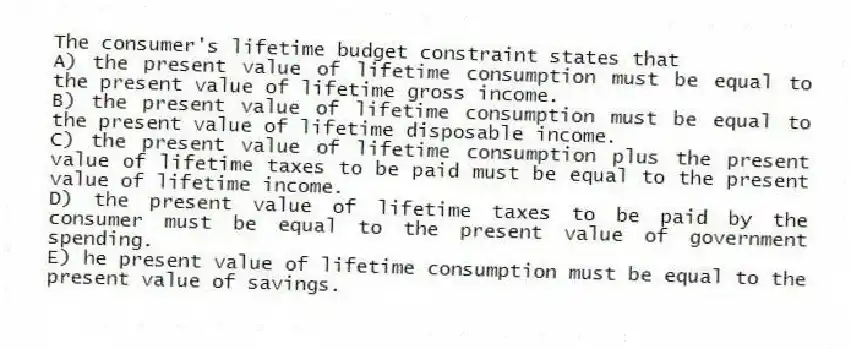
The consumer's lifetime budget constraint states that
A) the present value of lifetime consumption must be equal to the present value of lifetime gross income.
B) the present value of lifetime consumption must be equal to the present value of lifetime disposable income.
C) the present value of lifetime consumption plus the present value of lifetime taxes to be paid must be equal to the present value of lifetime income.
D) the present value of lifetime taxes to be paid by the consumer must be equal to the present value of government spending.
E) he present value of lifetime consumption must be equal to the present value of savings.
Correct Answer:
Verified
Q6: Consumption smoothing refers to
A) the tendency of
Q7: If we represents a two-period consumer's lifetime
Q8: A consumer's budget constraint in the future
Q9: Bonds are assumed to trade directly
A) through
Q10: In the two-period model of the economy,
A)
Q12: For all bonds to be indistinguishable,
A) all
Q13: A consumer's budget constraint in the current
Q14: If we represents a two-period consumer's lifetime
Q15: The endowment point is the consumption bundle
Q16: Consumption-savings decisions involve intertemporal choice as this
Unlock this Answer For Free Now!
View this answer and more for free by performing one of the following actions

Scan the QR code to install the App and get 2 free unlocks

Unlock quizzes for free by uploading documents